SERVICES
ADHD

Attention Deficit Hyperactivity Disorder (ADHD) is a complex disorder that needs a comprehensive evaluation and a step by step process of ruling out other conditions that might be mimicking the symptoms of ADHD. For example, traumatic events during early childhood, unidentified learning disabilities, unhealthy home environments, and a history of anxiety and depression symptoms might express themselves as symptoms of ADHD and lead to an incorrect diagnosis. From a medical standpoint, mild or moderate seizures, ear infections, allergies, asthma, vision or hearing problems, and diabetes, might also mimic symptoms of ADHD. Dr. Texidor’s evaluation process takes into account the above conditions and makes sure that they are ruled out before arriving at a diagnosis of ADHD. Treatment is based on the long standing research evidence that individuals with ADHD tend to have difficulties regulating their brain arousal system. The use of neurobiofeedback, coaching, and in some cases, medications are used to deal with the individual's arousal dysregulation.
Bilingual Assessment

Dr. Texidor is fluent in the cultural traditions, values, morals, and idiosyncrasies of Spanish speaking individuals and has more than twenty-five years of experience doing comprehensive evaluations for children, adolescents and adults. Dr. Texidor’s comprehensive psychological, psycho-educational, neurodevelopmental, and neuropsychological evaluations address conditions such as learning disabilities, attention deficit hyperactivity disorder (ADHD), non-verbal learning disabilities and/or visual-perceptual impairments affecting learning, autistic spectrum disorders (ASD), and emotional dysregulations including depression, anxiety, post-traumatic stress disorder (PTSD), and obsessive-compulsive (OCD) issues. Dr. Texidor also evaluates cases dealing with traumatic brain injury (TBI), fetal alcohol/drug related syndromes, and multiple handicapping conditions (MR, TMR, SMR, Genetic-Chromosomal syndromes). Dr. Texidor also provides consultation regarding IEP Reviews, second opinions regarding school diagnostic evaluations, and standardized testing recommendations (SAT, GRE, LSAT, MCAT, etc.).
Center for Attachment Resources and Education (C.A.R.E.)

Dr. Texidor has been providing services to Foster and Adoptive children for the past twenty-five years. At the Center for Attachment Resources and Education we provide:
- Training to foster and adoptive parents on how to provide a safe and secure environment to their children.
- Advanced education to professionals serving children with attachment issues.
- Pre and Post adoption consultation, coordination with adoption agencies and therapeutic treatment centers, and referrals to other mental health providers.
- Comprehensive neuropsychological evaluations to assess the effects of neglect, early traumatic experiences, abuse, malnutrition, and institutionalization effects on the developing brain of children that are up for adoption, have been adopted, and/or are within the foster care system.
- School consultations including IEP reviews, comprehensive evaluations to help in the development of an IEP for the child with attachment problems, and training of school personnel as to how to provide a secure environment within the school.
- Traditional therapy often does not help improve parent-child relationships in children with attachment problems. As a result, Dr. Texidor provides parents and children with brain-based cognitive therapy to address the often found lack of responsiveness to traditional psychotherapy treatments.
- Neurobiofeedback training in combination with brain-based cognitive therapy is also provided to address the hyper-arousal, hyper-vigilance, hyper-reactivity, and hypersensitivities demonstrated by children with attachment problems as a result of an over-active sympathetic nervous system.
- Training on how to deal with executive dysfunction both at home and at school.
- Second Opinion evaluations, especially, of complex diagnostic cases.
- Transitional resources for young adults who are in need of support, guidance, and further training on how to adjust to the demands of an adult life (Laundry, Cooking, Banking, Housecleaning, Job Applications, etc.).
Attachment Therapy
Attachment therapy, as defined by Dr. Texidor, is the process of changing a child’s negative reciprocity to a positive reciprocity with the adoptive mother and father, while addressing the issues of acceptance of self as a positive human being with tremendous capabilities, with the end result of re-activating feelings of empathy and attunement towards the adoptive family. This process includes parent training on how to provide a secure environment, where the child can feel safe and secure, while becoming connected to the adoptive parents, and overcoming fears of being hurt, rejected, and/or abandoned. Such physical and emotional proximity brings about negative memories that need to be dealt with in family therapy, and from an arousal dysregulation standpoint, through the use of neurobiofeedback training. Cognitive behavior therapy is used with both children and parents to deal with distorted cognitive beliefs emanating from early traumatic experiences and memories, and to provide models of how to use nurturing touch, physical and emotional closeness, and eye contact to bring about a healthier attachment to the adoptive parents and relationships in general.
Chemical Dependency

Adolescents and young adults who have gone through a medical detoxification period and have been sober for a few days to months are provided with brain-based cognitive therapy in an effort to provide them with the insight and skills needed to understand how their reactions to environmental stressors and demands are related to their alcohol or drug abuse. In addition, in order to reduce the risk of relapse as a result of stress, personal problems, and coexisting psychiatric and/or psychological conditions (i.e. anxiety, depression, or bipolar disorder) individuals with abuse-dependency issues are provided with neurobiofeedback training. According to research from 1977 to the present, neurobiofeedback treatment has proven beneficial in reducing factors contributing to chemical dependency such as decreasing stress levels, improving mood, and retraining the individual to better regulate their arousal system. Furthermore, neurobiofeedback has been found to improve the retention of individuals in alcohol/drug treatment programs while minimizing relapse rates in comparison to other more traditional chemical dependency interventions.
Education

Dr. Texidor has been providing training to parents, foster and adoptive parents, professionals, and paraprofessionals in an array of topics related to not only the needs of children with attachment problems, but to parents starting a family who need information as to the neurodevelopmental milestones childhood, and how it relates to future bonding and attachment with their biological children. His educational training seminars, not only provides the latest research information on the subject being presented, but provides answers to why children with attachment problems are having difficulties adjusting to their surroundings. Dr. Texidor’s ability to present technical/complex information in an easy to understand terminology, as well as, his humorous and interactive presentations, make for his seminars popularity. Dr. Texidor provides small group seminars for those who want a tailored presentation to their specific needs and a higher level of interaction. Please check upcoming seminars and/or call our office for more detailed information.
Upcoming Seminars: TBD
Upcoming Webinars: TBD
Neuropsychology
Dr. Texidor believes in a comprehensive evaluation that provides a through understanding of the individual’s functioning to parents, teachers, doctors, and other therapists involved in the treatment of the individual. Such information can then be used, to develop educational and therapeutic treatment plans tailored to the individual’s needs. Dr. Texidor’s experience evaluating children, adolescents, and adults referred by pediatricians, psychiatrists, lawyers, teachers, therapists, and parents tend to present with an array of symptoms including:
- Language-based, nonverbal and other learning disabilities
- Autism spectrum disorders including Asperger’s Syndrome and PDD
- ADHD and executive functioning deficits
- Emotional issues including depression, anxiety disorders, post-traumatic stress disorder, severe disruptive and behavioral disorders
- Neglect, malnutrition, early traumatic experiences affecting brain development
- Traumatic brain injuries
- Attachment related disorders
- Multiple handicapping conditions
- Burn and Carbon Monoxide poisoning survivors
Dr. Texidor provides a comprehensive battery of diagnostic tests selected based on each case history and the specific questions that the referral agent wants answered. Interpreting data and making the clinical correlations to the history and presented concerns is extremely important in not only developing a diagnostic impression of the individual, but the practical implications of such a diagnostic impression as it pertains to the development of corrective strategies and presenting them in a practical, easy to understand manner. Dr. Texidor’s goal is to develop a neuropsychological report that will be of the utmost benefit to the individual, family, and referral agent.
Neurobiofeedback
Neurobiofeedback training is a medication-free intervention that brings about changes in the individual’s ability to regulate their arousal system. As a result of better arousal regulation, the individual is able to function at peak levels of performance given the improvements in attention, memory, mood, and energy levels. Through the use of non-invasive computer-technology, we are able to monitor brainwave activity and teach the brain to normalize those brainwaves that might be creating dysfunctional behavioral, emotional, and/or learning patterns. Neurobiofeedback can be used in combination with other therapeutic interventions such as dialectical and cognitive behavior therapy to address the individual needs of the patients. Dr. Texidor has been using Neurobiofeedback in combination with other therapeutic interventions for the past ten years with very good success with patients with ADHD, Obsessive-Compulsive Disorder (OCD), Post-Traumatic Stress disorder (PTSD), Reactive Attachment Disorder (RAD), Traumatic Brain Injury-Concussion Syndromes, and Mood Disorder among other conditions.
Quantitative EEG (QEEG)
Quantitative EEG is a physiological measurement using digital technology to measure and analyze electrical activity at the surface of the scalp which primarily reflect cortical electrical activity or “brainwaves”. Over the last 25 years, advances in signal processing have made it possible to sample these brainwaves many times per second (usually 128 or 256 samples per second) and to analyze them in various ways. Using this technology we can now measure precisely the amplitude and frequency of brainwaves of interest, be fairly exact about the scalp distribution of the waves, and even compare a client’s QEEG data to a normative reference database.
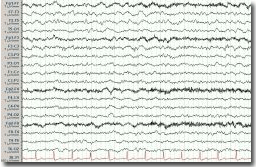
The QEEG documents abnormalities in electrical relationships amongst various areas of brain by comparing the patient’s eyes closed and eyes open data against a normative database. We can also obtain a “functional” QEEG recording under cognitive challenges such as reading, listening, math, and/or other demands. We can visually summarize the state of the EEG in topographic maps like the one below:
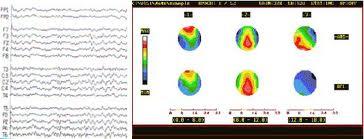
According to Dr. Patricia Quinn, Director of the National Center for Gender Issues and ADHD, and a member of the Professional Advisory Board of CHADD, QEEG:
“ …is the only procedure that comes out of the laboratory setting and is practical enough for use in the clinician’s office. By providing an objective measure, it aids the clinician in dealing with several problem areas often encountered in the diagnostic process. QEEG solves problems in identification including: differences in parent vs. teacher reports on rating scales; documentation of the inattentive type of the disorder which characteristically has been more difficult to diagnose…”
QEEG is not intended to be a “stand alone” evaluation or substitute for other neuropsychological tests. QEEG is best used as a tool to aid in the clinical diagnosis of an array of conditions and not as a substitute for clinical judgment and/or medical or neuropsychological opinion. The QEEG should be combined with other medical, psychological, and neuropsychological data for a better diagnostic impression of the patient.
School Consultation
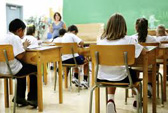
Dr. Texidor’s services to school age children, adolescents, and young adults include comprehensive psycho-educational evaluations, IEP reviews, advocacy at school conferences, and training of school personnel on how to deal with special needs children. Dr. Texidor is fluent in the Spanish and English language and uses specific diagnostic tests in the primary language of the student. Students who have been diagnosed with ADHD or other learning disabilities, and are college bound, are generally referred to Dr. Texidor for comprehensive evaluations prior to their first year in college, to facilitate the development of accommodations and aids through the Learning Center at the college of their choice.
Sport Psychology

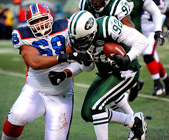
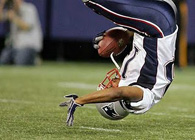

Dr. Texidor has been involved in sports as a player, coach, trainer, and professional consultant. From an educational standpoint, he has provided athletes from high school to professional organizations, with an array of individual training sessions or seminars on how to manage thoughts, feelings, attention and concentration, nutrition, how to manage stress during the season, and specific cognitive strategies for peak performance . In addition he has provided team building seminars to local high schools and club teams. Dr. Texidor strongly believes in developing a strong sense of mission not only in the player, as a team member, but also as a team. Sugarman (1999) shared that every player, athlete, and team must have a clear picture, in their minds, of what they want as well as a strong belief that they can achieve what they want. A mission statement according to Sugarman (1999) provides the passion, the vision, and influences the athlete and the team into positive actions. Marilyn King, a two time Olympian, once said:
“Passion is the source of tremendous energy and creativity exhibited by peak performers. Vision is the art and science of how to use the mind to guide the daily effective Action which produces extraordinary results” (Sugarman, 1999).
From a clinical standpoint, Dr. Texidor evaluates athletes with mild traumatic brain injuries (concussions) and makes recommendations regarding treatment and when the athlete might be ready to return to play. Specifically, the athlete’s performance on neuropsychological and neurophysiological measures such as a QEEG, are analyzed using pre injury data compared to post injury performance on the above measures. The difference between pre and post performance determines injury effects on brain functioning and provides guidelines for neurotherapy and return to play recommendations.